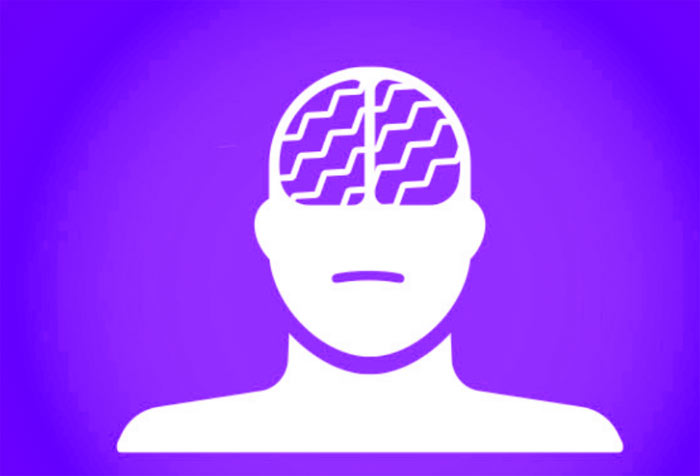Are you not in the pinkest of condition? You are caring about your health, but still, you get tried quickly and feel spent nearly all day long. Also, you cannot go without eating something salty. You tried to consult a doctor, but they could only shrug doubtfully. Chances are, you could be suffering from adrenal fatigue.

Is adrenal fatigue real?
The concept of “adrenal fatigue” is a controversial and debated topic among healthcare professionals. Some practitioners believe that chronic stress can cause the adrenal glands to become fatigued, leading to a variety of symptoms such as fatigue, low energy, difficulty sleeping, and decreased immune function.
However, the conventional medical community does not recognize adrenal fatigue as a medical condition, as there is little scientific evidence to support the theory. The adrenal glands do not actually become fatigued, but instead can adapt and continue to function despite chronic stress. The symptoms associated with adrenal fatigue can be caused by a variety of other conditions, such as depression, sleep disorders, and thyroid dysfunction.
Watch this video to learn more about adrenal fatigue:
How do adrenal glands work?
To be found mounted on the kidneys, the small adrenal glands generate a few hormones which are instrumental for maintaining some important inner functions, to name metabolism, blood pressure, and stress response.
The adrenal glands are known to comprise two layers – the outer one (professionally called adrenal cortex) and the inner one (medulla). The cortex layer generates cortisol, aldosterone, androgens, and some other hormones. Cortisol is involved in the processes of metabolism and the immune system; aldosterone participates in maintaining electrolyte balance and blood pressure.
The group of androgens has to do with male sex characteristics, engaged both in their development and further proper functioning; also smaller amounts of these hormones are present in female bodies where they help maintain overall health.
The adrenal medulla produces two hormones: adrenaline and norepinephrine. These hormones are part of the body’s response to stress and help prepare the body for fight-or-flight response by increasing heart rate, dilating airways, and increasing blood flow to muscles.

The adrenal glands are regulated by the hypothalamus and pituitary gland in the brain. The hypothalamus releases a hormone called corticotropin-releasing hormone (CRH), which signals the pituitary gland to release adrenocorticotropic hormone (ACTH). ACTH then stimulates the adrenal glands to produce cortisol and other hormones.
As you see, the adrenal glands play a crucial role in maintaining the body’s overall health and responding to stress.
What are the signs of adrenal fatigue?
Since the adrenal glands are responsible for a number of very significant hormones, what is referred to as “adrenal insufficiency” means that these hormones are not generated in sufficient qualities. It can result in aggravating health conditions, contribute to the development of a disease.
If you happen to have adrenal insufficiency, you may often experience:
- painful sensations in various parts of the body
- exhaustion coming on too quickly
- unusual drop in weight
- drop of blood pressure
- problems with digestion
- food cravings, like for sugary and salty foods
- nervous bouts
- poor ability to concentrate
- hair falling off
- skin changing color, hyperpigmentation
You need to undertake special tests to see if you have adrenal insufficiency – stimulation tests to pin the exact amount of the necessary adrenal hormones.
As it should be theoretically

As a situation grows more stressful, your body begins to react: the immune system speeds up, the adrenal glands start to release more hormones, the level of adrenaline and cortisol goes up. The heart begins to race, blood pressure increases. Outwardly it manifests in triggering the “fight or flight” reaction.
As the theory maps it out, in cases of a lasting stress, say, the death of a close loved person or an extremely emotional break-up, the adrenal glands get overworked and cortisol no longer gets produced in sufficient quantities. This means that you’re dealing with adrenal fatigue.
Unfortunately, this condition cannot always be detected, since blood tests may not show a slight decrease in the function of adrenal.
To set things right for proper adrenal function go for meals with no sugar and street food, but heavy on special nutritional supplementation rich in various vitamins and mineral additives:
- Vitamins B5, B6, and B12
- Vitamin C
- Magnesium
If you intend to make use of supplements, consult a physician to make sure how they react with the other medication you are taking.
When you go to see an alternative health specialist and they diagnose adrenal fatigue, they are highly likely to advise you to stay off alcohol, strong coffee, drugs, tobacco; you may also be told to alter your eating habits, ensure enough sleep and exercise.
In case you are gravely troubled by feeling fatigued, the condition that sets in early on and can’t be thrown off, consult your doctor. You will have to undergo a few tests to see how you are going on and if you possibly have underlying issues like low thyroid level. Addressing these issues may help you rid of fatigue.
Reasons behind feeling tired
The state of unceasing exhaustion can be attributed to various reasons, many of which are stipulated by your routine life, the worst factors being:
- regular overworking
- family conflicts and friction
- insufficient sleep
- no physical activity or too much of it
- unhealthy eating habits
- going overboard with alcohol
- depression, other suchlike mental issues
Those medicos who specialize in adrenal fatigue put it down to constant stress that results in adrenal insufficiency which in its incipient stages causes fatigue. Although it hasn’t been definitely verified yet, the notion is that the adrenal glands fail to respond properly to the state of permanent nervous tension. The proponents of this notion state that blood tests are incapable of registering such small deficiencies, but still they affect bodily functions.
What is adrenal insufficiency?

While adrenal fatigue is a doubtfully diagnosed condition, adrenal insufficiency is a fully diagnosable, professionally acknowledged disease. Adrenal insufficiency manifests itself in two forms, both of which develop due to any adrenal problems that cause a decline in the production of cortisol.
Both forms are characterized by weakness, lightheadedness, a permanent state of fatigue, also by bad appetite, pains in the stomach, and weight loss. Other symptoms may include decreased blood pressure, diarrhea, vomiting, skin discoloration. Depression is also one of possible ramifications.
To detect adrenal insufficiency you have to undergo a blood test designed to assess your cortisol level (see it isn’t too low for your boon). Once it has been detected, a hormone replacement may be required to address the condition.










